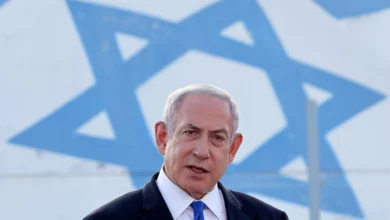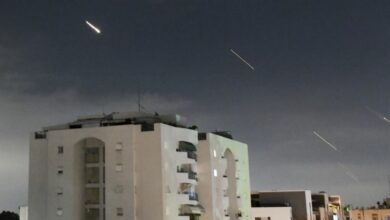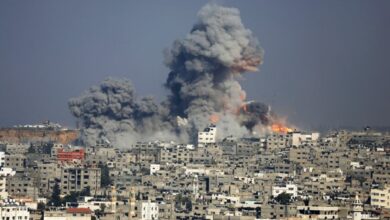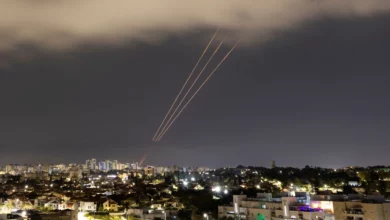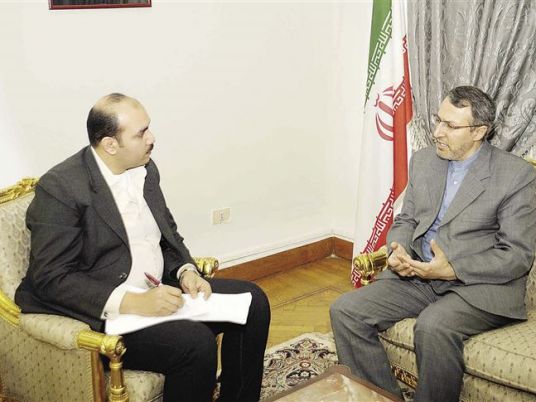
Iran does not intend to assault any other country, acting Iranian ambassador to Cairo, Mohamed Mahmoudian, has told Al-Masry Al-Youm.
Iran's ballistic missile tests are part of a quest to prop up the country's nuclear capabilities, he added.
According to the ambassador, the sanctions on missile tests that have been pushed for by various countries are intended to “hinder the development of Iran’s defense capabilities and the progress of the Islamic nation”.
A US court's accusation of Iranian involvement in the September 2001 attacks are “a funny lie”, “fabricated by the Zionist lobby” to disrepute Iran which is a victim of terrorism itself, the ambassador said. He added that the verdict, which required Iran to pay US$10.5 billion in compensation to victims’ families, was “100 percent politicized.”
Commenting on Saudi Arabia’s proposed 34-state Islamic military alliance, announced in December and designed to fight terrorism in the region, Mahmoudian labelled the announcement as a mere “propaganda.”
“Any regional alliance ought to comprise all Islamic nations without exception so as to be striking force against enemies of the nation, especially in the field of counter-terrorism,” Mahmoudian stated.
“But when [the alliance] is formed to combat unknown targets, it becomes unacceptable.” The ambassador said the real threat to Islamic nations needing to be confronted is the Islamic State group.
Shifting to the crisis in Yemen, Mahmoudian said the conflict will not be resolved by military means. He noted that the Houthis are a part of the Yemeni nation. Iran, the ambassador stressed, supports the re-establishment of stability in Yemen.
Concerning Syria, Mahmoudian stressed that his country and Egypt share similar views on the need for political, rather than military, solutions to the conflict in Syria. Egypt’s decision not to send ground troops to Syria was “smart”, Mahmoudian said, also praising Russia’s withdrawal as a “positive signal” for ceasefire efforts. He added that the presence of Iranian advisors in Syria is at the request of what he described as “the legitimate government”. He added that the fate of Syrian President Bashar al-Assad should be determined by the people .
Commenting on the Arab League’s decision to brand Lebanese Shia militia Hezabollah as a terrorist group, Mahmoudian dismissed the resolution as “negative”, arguing that Hezbollah has managed to “confront Israel and rein it in.”
On relations with al-Azhar, Sunni Islam’s highest religious academy, Mahmoudian invited the Grand Sheikh of al-Azhar, Ahmed al-Tayyeb, to visit Iran to seek rapprochement between Sunnis and Shias. “The concept of Sunni-Shia conflict is upheld by the joint enemies of both countries: the Zionist entity,” as the ambassador put it.
Mahmoudian also expressed his hopes that Iran and Egypt will overcome political differences and revive the flow of tourism between the two countries. “Iran is ready to provide Egypt and any other Islamic nation with the technology for peaceful nuclear power within the frame of international agreements.”
Al-Masry Al-Youm asked the ambassador what developments can be expected in the tense situation between Iran and Saudi Arabia since the Gulf kingdom executed influential Shia preacher Nimr al-Nimr. In reponse, Mahmoudian reiterated that Iran’s hands are “extended to all Islamic nations, including Saudi Arabia,”
Iran also shares President Abdel Fattah al-Sisi’s view that resolving conflicts in the Middle East is contingent on resolving the Palestinian-Israeli conflict, said the ambassador.
Edited translation from Al-Masry Al-Youm

